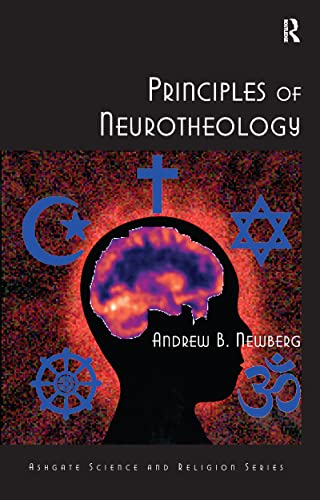The Gospel Commission: Recovering God’s Strategy for Making Disciples
Written by Michael Horton Reviewed By Mike McKinleyMost Christians agree that when Jesus told his disciples to go and make disciples of all nations, he gave the church its mission until the end of the age. It is much harder, however, to gain consensus on how the church is to fulfill that mission. And while the younger generation of evangelicals has sought to move the evangelical church toward a “missional” engagement with their community, there seems to be a lack of clarity with respect to the way that the mission of the church relates to the institution of the church. It is easy to make the mistake of treating the institutional church (with its weekly gatherings, administration of the sacraments, and formal leadership) as if it impedes the church's ability to organically serve as salt and light in the community.
Michael Horton does an excellent job of addressing that uneasiness and reconnecting the church with its mission in his book The Gospel Commission: Recovering God's Strategy for Making Disciples.Horton aims to “call us away from mission creep, centering our discipleship and our churches on the very specific sources, goals, strategies, and methods that Christ mandated for this time between his two comings” (p. 8).
The book is divided into three sections. Part One, “The Great Announcement,” overviews God's redeeming mission throughout the Bible. Horton takes the reader on a tour of the Bible, showing how God's missionary activity in the exodus and conquest narratives of the OT point forward to the arrival of Jesus and “the new wine of God's kingdom” (p. 47). This section addresses and corrects two common misunderstandings about the kingdom of God—that the kingdom is a purely spiritual reality, or that the kingdom is concerned primarily with the moral advancement of the human race.
Part Two, “The Mission Statement,” carefully looks at Jesus' words in Matt 28:18-20 and fleshes out implications for the church and our understanding of what it means to be and to make disciples. Here Horton describes the four “D's” that frame the Christian faith:
- drama (understanding God's acts in history);
- doctrine (the teaching and conclusions that arise from those acts);
- doxology (the wonder and praise that arise from comprehending those doctrines);
- discipleship (our reasonable service in light of God's mercy).
Failing in any one of those arenas will create an anemic and misshapen mission.
Part Three, “The Strategic Plan,” argues that the church as Christ instituted it is the means for fulfilling the Great Commission. The church has received from Christ the methods for making disciples, and the remarkable thing is just how unremarkable these methods are: preaching, the sacraments, gathering on the Lord's Day, church discipline, biblical church leadership, the gifts of the Spirit, prayer, evangelism, and instructing our children.
It is the ordinariness of that list that highlights what I appreciated most about The Gospel Commission. Somewhere along the way Christians seem to have lost confidence in the idea that the Bible actually gives the church instructions for fulfilling the Great Commission. Despite the “simplicity and clarity of our Lord's mandate . . . we seem so far off course from these methods today” (p. 164).
Horton also does an excellent job of showing how the church is uniquely designed by God to make disciples and that as a result the best way to spread the gospel is to establish healthy churches around the world. Para-church ministries and social programs may help the church fulfill the Great Commission, but it will be the ordinary preaching of the gospel and administration of the sacraments that will take the gospel to the world and make disciples. This is a welcome word to ordinary pastors of established congregations who struggle to locate their ministry in the larger picture of Christ's work here in earth. Horton writes, “The Great Commission is as much the mandate to care for the sheep in a two-hundred-year-old congregation in New York as it is to seek the lost in Nairobi” (p. 138). In short, The Gospel Commission does us a great service by reminding us that the church and its mission are inseparable. To love one is to love the other. To neglect one is to neglect the other.
For all that the book has to commend it, there were a few times when I found myself struggling to locate the particular argument I was reading within the larger argument of the book. For example, in the lengthy chapter on redemptive history, it was easy to lose the thread of the overall purpose of the chapter, a discussion on the nature of the kingdom of God. There are also instances in the book where the author seems to be pressing a bit too hard to make a point. In one section, Horton criticizes kenotic tendencies in the so-called “incarnational model” of contextualization. While he is correct in his analysis, Horton doesn't seem to take into account the way in which many people use that term much more responsibly. It is true that our contextualization has discontinuities with Christ's incarnation. But it is also true that our contextualization has continuities with Christ's incarnation that go beyond the humility enjoined on us in Phil 2 and mentioned by the author (p. 119). Surely Jesus' own understanding of the mission of his incarnation has implications for our mission (Luke 19:10; John 20:21) that go beyond humility and adapting to culture. My fear is that readers who come to the book from a different perspective might be tempted to disregard the larger argument of the book because of that perceived lack of fairness to their position.
Finally, readers who don't share Horton's paedobaptist and Reformed convictions will find plenty of statements in the book with which to quibble. But none of those disagreements should prevent the reader from benefitting from and being shaped by Horton's argument.
In summary, I highly recommend this book to pastors and other motivated Christians.
Mike McKinley
Mike McKinley
Guilford Baptist Church
Sterling, Virginia, USA
Other Articles in this Issue
Evaluating a new English translation of the Bible can be extremely difficult...
In the November 2009 edition of Themelios, Dane C...
Jonathan Edwards (1703-1758) is remembered today as a saint, scholar, preacher, pastor, metaphysician, revival leader, theologian, Calvinist—the list goes on...
Almost two decades ago I wrote an essay titled " When Is Spirituality Spiritual? Reflections on Some Problems of Definition ...
He was the youngest son of elderly parents. His childhood was secluded and unhappy, which might in some measure account for his lifelong melancholy...







